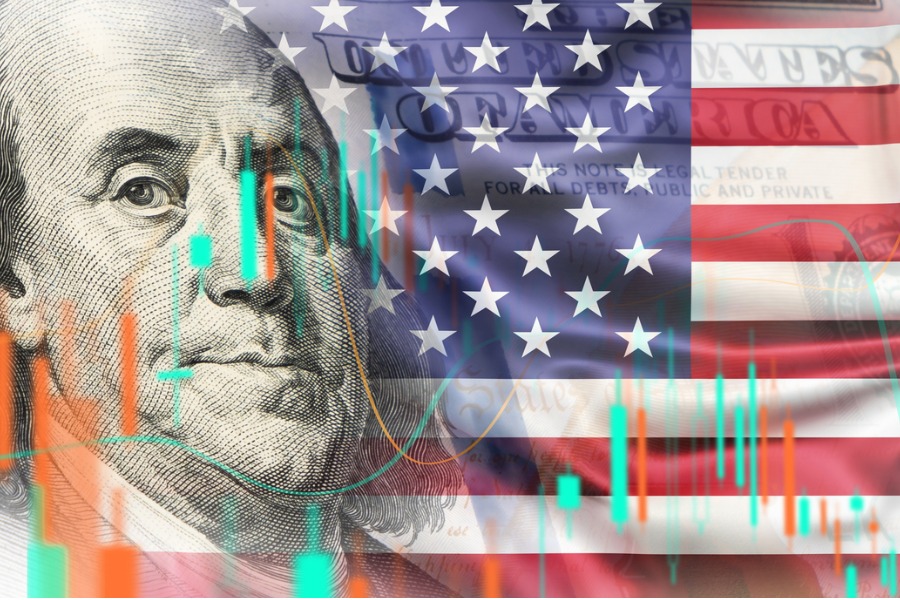

In a week that saw an epic rally in US stocks and recession calls cast aside, currency traders are just as bearish as ever on the American dollar.
Strategists at JPMorgan Chase & Co. and Deutsche Bank AG say the currency will keep weakening, and sentiment among options traders is the most negative in five years. The dollar index is still close to its April lows, evidence that investors are wary of returning despite the easing of China trade tensions that lifted other markets.
It’s been a volatile ride, with the greenback having plunged over 6% in 2025 against a basket of currencies, its worst year so far in Bloomberg data going back two decades. In the view of many, US policymaking continues to be erratic and unpredictable, making the currency less attractive. And despite denials from Washington, some investors still suspect the Trump administration of wanting a weaker dollar to shore up the US manufacturing base.
“US exceptionalism is eroding gradually, and these moves have longer to run,” Kamakshya Trivedi, head of global currencies at Goldman Sachs Group Inc., said on Bloomberg TV this week.
While the “Sell America” trade may have lost some of its intensity, the market is still uneasy, according to Valentin Marinov, head of G-10 FX strategy at Credit Agricole SA. Investors now have a “love-hate” relationship with the dollar, he said.
Bets in the options market on a decline in the dollar over the next year are now at the highest level since 2020. These long-term options are typically used by money managers rather than short-term speculators, reinforcing the argument that a broader reassessment of dollar exposure is taking place.
Meanwhile in stocks, the S&P 500 has rallied over 4.5% this week as President Donald Trump’s tour in the Middle East fanned optimism for tech deals and inflation data was subdued. US equity funds attracted about $19.8 billion in the week through May 14, the first inflows in five weeks, according to a note from Bank of America Corp. citing EPFR Global data.
While the dollar rallied 1% on Monday on the back of the news that China and US agreed to temporarily cut tariffs, it lost most of those gains later in the week.
This underperformance versus stocks “is showing you that international investors simply aren’t buying into Trump’s US exceptionalism theme,” said Peter Kinsella, head of FX strategy at Union Bancaire Privee Ubp SA.
To Erik Nelson, a macro strategist at Wells Fargo, there needs to be more signs of a structural US slowdown for the dollar to weaken further. “I’m trying to keep a very open mind in this market because what the dollar did in April was pretty wild,” he added.
George Saravelos, Deutsche Bank’s global head of currency strategy, notes that inflows into US assets are already slowing, while countries like Taiwan have asked banks to review risk management protocols on their US investments. All this points to less buying of Treasuries, considered the safest investments in the world.
The clearest sign of this will be a further decoupling of US yields and the dollar, Saravelos said. That would involve the dollar falling against the yen while Treasury yields climb, given that Japan is traditionally one of the biggest investors of US fixed income and any slowdown in buying would have weight.
Strategists at JPMorgan say the case for shorting the greenback remains intact. The team including Meera Chandan wrote that the US’s softer stance on tariffs would support economic growth in other parts of the world, boosting their currencies.
In the view of Jupiter Asset Management’s Mark Nash, investors are looking for countries that have outsized dollar holdings and then shorting the greenback against the local currencies. The Korean won and Indonesian rupiah are two that stand out to him.
“Asia is now at the forefront of a global repatriation theme,” he said. “Investors are taking their capital back from the US.”

Chasing productivity is one thing, but when you're cutting corners, missing details, and making mistakes, it's time to take a step back.

It is not clear how many employees will be affected, but none of the private partnership’s 20,000 financial advisors will see their jobs at risk.

The historic summer sitting saw a roughly two-thirds pass rate, with most CFP hopefuls falling in the under-40 age group.

"The greed and deception of this Ponzi scheme has resulted in the same way they have throughout history," said Daniel Brubaker, U.S. Postal Inspection Service inspector in charge.

Elsewhere, an advisor formerly with a Commonwealth affiliate firm is launching her own independent practice with an Osaic OSJ.
Stan Gregor, Chairman & CEO of Summit Financial Holdings, explores how RIAs can meet growing demand for family office-style services among mass affluent clients through tax-first planning, technology, and collaboration—positioning firms for long-term success
Chris Vizzi, Co-Founder & Partner of South Coast Investment Advisors, LLC, shares how 2025 estate tax changes—$13.99M per person—offer more than tax savings. Learn how to pass on purpose, values, and vision to unite generations and give wealth lasting meaning
